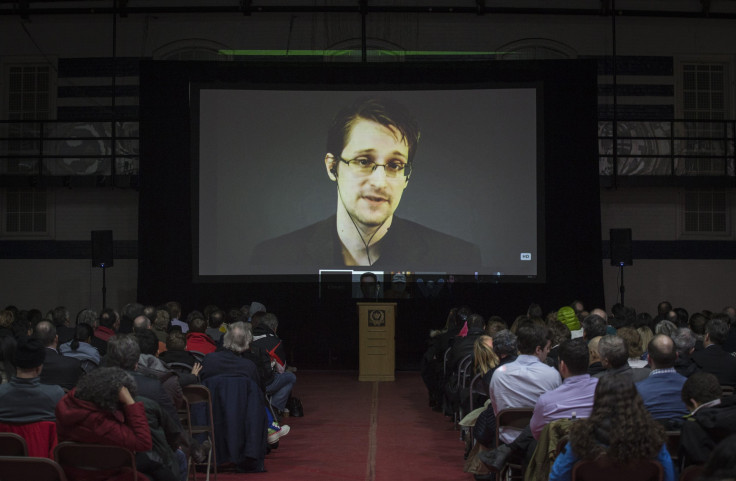Edward Snowden Interviewed On Last Week Tonight With John Oliver

John Oliver, host of HBO’s Last Week Tonight, traveled to Russia to interview whistleblower Edward Snowden for his latest episode, nearly two years after the former National Security Agency (NSA) contractor fled to Russia to escape prosecution in the U.S.
Seated in a Moscow building across the street from the headquarters of Russia’s Federal Security Bureau, Snowden answered questions related to his time in Russia, how much faith he had in the American public, and the specifics of the documents he leaked.
"I do miss my country. I do miss my home. I do miss my family," Snowden said. “I miss hot pockets very much,” he added.
Snowden had left the U.S. after being charged under the Espionage Act for leaking a trove of documents which revealed the vast scope of the U.S. surveillance apparatus, showing how it indiscriminately collects telephone and internet data. The revelations triggered global condemnation and calls for stronger privacy controls, especially as details emerged showing how the U.S. and allied countries spied not just on their own citizens, but citizens of countries across the world.
Oliver also grilled Snowden on the specifics of the tens of thousands of documents he leaked, asking: “How many of those documents have you actually read?” to which Snowden was noncommittal. “I do understand what I turned over,” the former NSA contractor said.
“There’s a difference between understanding what’s in the documents and reading what’s in the documents … because when you’re handing over thousands of NSA documents the last thing you’d want to do is read them,” Oliver responded sarcastically, citing a case where the New York Times published a slide which revealed that intelligence agencies were spying on al Qaeda militants in the Iraqi city of Mosul.
“That is a problem,” Snowden admitted, to which Oliver retorted “that’s a f**k up.”
They also discussed the difficulties that whistleblowers and journalists had trying to communicate the complexities of the NSA’s surveillance network to ordinary Americans, a problem that was highlighted when Oliver showed Snowden a montage of people in Times Square admitting they had no idea who Snowden was. “On the plus side it seems you can go home since no one knows who the f*** you are or what the f*** you did,” Oliver commented.
He suggested that Snowden break down the spying program and explain it to Americans in terms that they could better understand, showing him a montage of people who were interviewed about the possibility of their nude photos being stolen, which inspired a much stronger response. “If I had knowledge that the U.S. government had a picture of my d**k, I would be very pissed off,” one subject said.
“This is the most visible line in the sand for people: Can they see my d**k?” Oliver stressed, handing Snowden a folder. “So with that in mind, look inside that folder. That is a picture of my d**k. So let’s go through each NSA program and explain to me its capabilities in regards to that photograph of my penis.”
"The good news is that there's no program named the 'd**k pic' program,” Snowden said. “The bad news ... they are still collecting everybody's information, including your d**k pics.”
Snowden then detailed the various ways the NSA could acquire these pictures. “When you send your junk through Gmail, that’s stored on Google’s servers,” he said. "If you have your email somewhere like Gmail hosted on a server overseas or transferred overseas or anytime it crosses outside the borders of the United States, your junk ends up in the database."
Asked if citizens should alter their behavior to avoid sending sensitive material -- including pictures of their penis -- through the internet, Snowden was defiant. “You shouldn’t change your behavior because a government agency somewhere is doing the wrong thing,” he stressed.
“If we sacrifice our values because we’re afraid, we don’t care about those values very much,” Snowden added.
© Copyright IBTimes 2024. All rights reserved.











